Entertainment with a Soul
Author Elizabeth Musser on her writing and latest novel, From the Valley We Rise
Greetings, fellow readers,
What a gift I have for you today! Back in April, I shared a post about historical fiction and its importance in relaying the story in history. I received many lovely emails and responses to that post, and one dear reader (and longtime pal) recommended a book from a new-to-me author.
Friends!
I’ve since read two of Elizabeth Musser’s titles, and let me tell you, I’ve been missing out. Musser’s storytelling is absolutely gorgeous, and the rich historical detail in the two novels I encountered stunned me.
Also, a fun serendipitous discovery came when I realized that Elizabeth happens to work with the same missions organization my husband and I served with back in the early 2000s. Small world! Another discovery (I’ll call this one providence), came when I realized Musser has a new release coming out this month. I was delighted to get the opportunity to read an advanced copy of the novel and play a small part in promoting From the Valley We Rise.
Before we jump in, a little more about the author:
Elizabeth Musser writes “entertainment with a soul” from her writing chalet (a toolshed) outside Lyon, France. A Carol Award winner and Christy Award and Georgia Author of the Year finalist, Elizabeth’s critically acclaimed novels have been translated into multiple languages and have been international bestsellers. The Swan House was named one of Georgia’s Top Ten Novels of the Past 100 years. By Way of the Moonlight was a Publishers Weekly Top Ten Pick in Religion and Spirituality. Elizabeth and her husband, Paul, have worked with the nonprofit One Collective for over forty years.
I’m so excited to introduce Elizabeth Musser to you, so without further ado…
Elizabeth, thank you for taking the time to visit us here at Letters and Literature. I’m honored to introduce my readers to your work, and I’m eager to talk about your latest novel From the Valley We Rise which releases this week.
Before we talk more about this wonderful book, I’d love to hear a little about your path to writing. How did you become a novelist?
Ever since I was 6, I knew I wanted to be a writer when I grew up. I could not not write. Writing was how I expressed joy and sadness, my questions about life, love, and faith. I always had stories running around in my head. At nine, I started what I presumptuously called “my first book”. I wanted to be the youngest writer ever. That book remains unpublished to this day :).
Also, at the age of nine, with the innocence and sincerity of a child, I became a Christian. No one pushed me to make that decision. God drew me to Himself, and I loved him with my whole heart. And so, I had this other passion in my life, to love God and live my life for Him.
I was writing inspirational fiction long before there was any category listing at Barnes and Noble. In my mind, I could not separate my faith from my writing. What I believed just naturally found its way into my stories, even as a young girl. This doesn’t mean that I thought I was God’s gift to literature. Au contraire! But I recognized my gift, and with fear and trembling, I asked the Lord to bless it. My faith in Christ as Savior and Lord and my love for writing have been the two passions that have guided my life ever since I was a young girl.
Fast forward many, many years. My husband and I had been serving as missionaries in France since the early 1980s. During a summer furlough in America in 1994, I attended my first writer’s conference. There I met a book editor who, years earlier, had worked with our mission agency in France, and I knew him. We were quite surprised to find each other at this conference. I had a fifteen-minute interview with this editor, Dave, in which I said, “I’d like to write a women’s devotional.” To which Dave, ever the gentleman, said, “Well, we don’t need that…But we are looking for a woman novelist.” “I can do that too!” I replied.
I knew that a publishing house ‘needing a woman novelist’ was not an everyday occurrence. In my heart, I thought, “Lord, you’ve put me at the right place at the right time!” At the conference, I learned how to write a professional book proposal. Four months later, I sent Dave the proposal (via snail mail from France). He really liked it and presented it to the committee which decides on book contracts. Two weeks later, he called me long distance in France, and said, “How would you like to write a book?” I had my first contract for a novel. It was indeed a dream come true—but a dream proceeded by over 20 years of writing and prayer! I was ecstatic. Every day when I sat down at my computer to write, I felt like I was getting a hug from the Lord.
What an incredible story! As a novelist working my way toward publication (hopefully), it’s a powerful reminder of God’s calling and sovereignty. Wow. I’m so encouraged.
As I looked more into your body of work, I loved the range I discovered. You write both contemporary and historical fiction. What are the unique challenges and blessings in writing in those two very different genres? Does one come easier for you than the other?
My first six novels were what I call ‘recent historical inspirational fiction’ (a mouthful!), set in and before the 1960s either in Southern France, where I was living, or in the South in the US. I’m originally from Atlanta and am a Southern gal at heart. Since I had spent almost all of my adult life in France, I really did not feel connected to contemporary America and didn’t desire to write about it. It wasn’t until I had lived back in the States for six months that I tackled a more contemporary novel.
I really enjoy research and am inspired by taking little known parts of history and creating a story around that time period. It probably sounds strange, but for me, writing contemporary fiction was, at first, more challenging than historical.
But in both genres, I call my writing ‘entertainment with a soul.’ I weave history, art and literature, romance and suspense, faith and action in my novels. But I also want the reader to find the soul in my book and in my characters. I try to create realistic characters with strengths and weaknesses who struggle with questions about pain and suffering, faith and belief, and what that means in life.
My goal is to write the best literature I can, with real characters and themes that strike a chord in the reader’s heart and force the reader to think, to ask questions, to laugh and cry and hope. To be entertained way down in his or her soul.
Well, I’m here to say, you succeeded marvelously! I couldn’t put down the two titles I recently read. The history behind By Way of the Moonlight astounded me. I had no idea the breadth of happenings associated with The Battle of the Atlantic and learned so much. But beyond the historical significance, the story was stunning. The dual timeline and intergenerational tale especially captivated me.
And speaking of stunning—let’s chat about your new historical fiction release, From the Valley We Rise! I loved the multiple points of view and the evocative storytelling, not to mention the obvious depth of research and familiarity with the location.
Can you please provide a summary of your newest novel for my readers?
French Resistance agent Isabelle Seauve, US Army Chaplain Peter Christensen, and young René Amblard, a maquisard in the Resistance, each face danger and harrowing choices on the eve of Operation Dragoon, the Allied invasion of Southern France, in August 1944. The Germans have a stronghold on France; fear has a stronghold on Isabelle; regret has a stronghold on Peter; survival and rage have strongholds on René. But when the town of Sisteron is bombed during Operation Dragoon, they will discover someone who has a stronger hold on them than any of the evil in the world.
From the Valley We Rise is set against the stunning background of the Penitent Cliffs in the craggy mountains of the Hautes Alpes of France.
This review from Library Journal also made me smile—the reviewer nailed it!
What do an American Protestant missionary, a quiet French Catholic girl, a U.S. Army chaplain, a young farm boy, and a grieving Jewish girl all have in common? They have all decided that opposing the Nazi regime in Europe is more important than their own personal safety… (They are) counting down the hours to the second D-Day on the southern coast of France and awaiting the salvation the Allies will bring, even as they worry that a traitor in their midst may destroy their network that conceals and protects Jewish children all over the French countryside. Musser explores deep spiritual themes, like the interconnectedness of humanity and continuing to do the right thing even as faith in God and humanity starts to falter. Readers who enjoy nuanced French Resistance stories will appreciate this novel and root for victory for its motley crew of ordinary people who become heroes during a terrible time in history.
You’ve lived in France for many years. How has that experience informed the historical and cultural details in your novel?
Setting is always an important part of my novels. Living in France, I was able to visit Sisteron, the city where much of the novel takes place. I toured the city’s formidable Citadel, wandered along the Durance River and meandered through the andrones (you’ll have to read the novel to know what these are.) I also visited the nearby town of Les Mées and was awestruck by the beauty and uniqueness of the Penitent Cliffs. When I learned of the legends of the cliffs, I knew they would be a central part of the story.
Your knowledge of the region is evident; your descriptions are incredibly rich. Also, I absolutely loved the inclusion of the Penitent cliffs. The symbolism sang in the narrative.
The story takes place in Provence. Why did you choose this specific region of France?
My first interest (unbeknownst to me at the time) started way back in 1983 when my teammates and I, newly arrived in France, took a group of college-aged Americans to a village near Sisteron called Entrepierres, where we spent two weeks lifting stones and digging ditches to help build back this dilapidated village.
Heading up the work project was a visionary British missionary who lifted his hands to the sky and challenged us in our thoughts about faith, work, and love. His vision, which became a reality, was to create a retreat center for full-time French pastors and missionaries. God has mightily used Entrepierres, the real name of The Camp Between the Hills, and I knew it needed a central part in my story, although I move its timeline back into the 1930s and 40s.
A few years ago, I ventured to Entrepierres for a week-long debrief. While there, I visited Sisteron and learned of the bombing of the city on August 15, 1944. That piqued my interest, since I like to include little-known parts of history in my novels. Although I’ve lived in France for over 35 years, I had heard very little about Operation Dragoon and the Allied invasion of Provence during World War II. And so my research deepened.
I’ve posted 10 brief videos and many photos taken on location in Sisteron, Entrepierres, and les Mées which can be viewed on my social media platforms.
Don’t miss those, readers! Links are below, and I enjoyed putting the visuals to the story.
I love that God used your own experience in missions to influence and inform this story. As a former missionary, that inspires me. The French Resistance also plays a central role in your novel. What inspired your interest in this aspect of World War II?
While I knew little about Operation Dragoon, I’ve been fascinated by the courage of those in the French Resistance for many years. My family moved to Lyon in 2003, and I learned a lot about the role the Resistance played in this city as I researched for my novel Searching for Eternity. It never gets old to tell stories of ordinary citizens who display extraordinary courage in the face of danger and tragedy.
I’d love to hear about the research involved in accurately portraying both the Resistance movement and the plight of Jewish children in hiding.
There is a wealth of information available in books, online, and in documentaries, but my first interest came from hearing stories about how a pastor in the French village of Le Chambon-sur Lignon, along with many of the town’s residents, helped shield Jewish children and other vulnerable people from the Germans. The operation saved the lives of thousands of refugees, including about 5,000 Jews.
Another source of research came from the movie Au Revoir Les Enfants (Good-bye Children), a French classic that is based on events in the childhood of the director, Louis Malle. As a boy he attended a Roman Catholic boarding school near Fontainebleau. One day, he witnessed a Gestapo raid in which three Jewish students and a Jewish teacher were rounded up and deported to Auschwitz.
Finally, the Martin Network in my story is loosely based on several real networks in France that rescued Jewish children. In my research, those who headed up the rescues never spoke about their service or work for 50 years. The 2024 movie One Life starring Anthony Hopkins is an accurate portrayal of one of these networks. For the plot and timeline in the novel, I brought the children, families, and rescuers together at the end of the novel after 10 years.
This part of the story is heart-wrenching. How do you balance the heavy themes of sacrifice and loss with hope and faith?
I am inspired by the true stories of individuals who risked their lives for the sake of the persecuted and never wanted any recognition for their acts of bravery, kindness, resistance, and courage. Truth is stranger than fiction. Truth is also more beautiful than fiction when viewed through the lens of faith in a God who is in the business of healing and bringing beauty from ashes.
The real-life village of Entrepierres is a testimony to all the beauty and healing that can come as broken things are restored. Running throughout the novel is that message of hope: for the war to end, for restoration of villages and relationships, for redemption.
Absolutely. I loved the redemptive thread throughout this book. The reader always senses beauty among brokenness.
Before we conclude, I’d love to hear a little more about this writing chalet of yours from your bio! Can you share about your writing space/office?
Yes, my bio states that I write ‘entertainment with a soul’ from my writing chalet outside Lyon, France. Doesn’t that sound charming? The ‘writing chalet’ is an adorable little tool shed that was on the property when we bought our house. After cleaning out the rusted tools and spider webs, my husband insulated the shed and put in flooring. I walk about fifty steps from our front door down to the chalet every day where I happily share the space with friendly granddaddy-long-legs, although occasionally I chase them out.
My husband made me a long desk from where I look out onto our front yard. My desk has bookshelves with my research books on one side and files with all my notes for my current WIP (work-in-progress) on the other side. I have a bookshelf with all my novels in English and in other languages, and I have framed covers of most of my novels hanging on the wall.
During the pandemic, we built open shelving where I keep my favorite classics, my anthologies of English Literature, family photos, and stacks of my journals written in spiral notebooks, plus plenty of photos and memorabilia from my kids, grandkids, and readers. I’m a very sentimental soul.
The chalet is truly a cozy space that I’m blessed to have.
I need this in my life…knowing my husband reads all my posts, I’m just going to leave that right there. :)
Lastly, I always love to ask my guests for a favorite book or recent reading recommendation.
I have enjoyed several books by lovely Amanda Dykes. Most recently, I read Born of Gilded Mountains. Amanda’s prose reads like poetry, and her characters become your flawed and favorite friends.
I’ve seen this title recommended multiple times—probably time to find my way to it!
Thank you again, Elizabeth, for your time. I hope many people have the opportunity to read From the Valley We Rise. It’s a gorgeous book.
Merci, dear Tiffany, for the privilege of sharing here on Letters and Literature, and many blessings on you as you move toward the publication of your first novel.
Friends, you can find Elizabeth on her website and socials:
Facebook: @ElizabethMusserAuthor
From the Valley We Rise releases this week, and you can find it at your favorite book retailer or at Baker Publishing Group.
It’s also our giveaway this month! To enter, current subscribers need only reply to this email and type VALLEY in the subject line.
If you are new to Letters and Literature, simply subscribe below for an automatic entry. The winner will be announced with next month’s interview.
Until we meet again, friends,
Tiffany

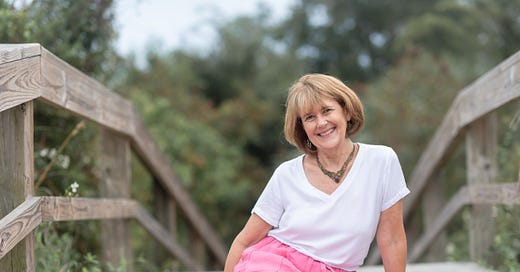



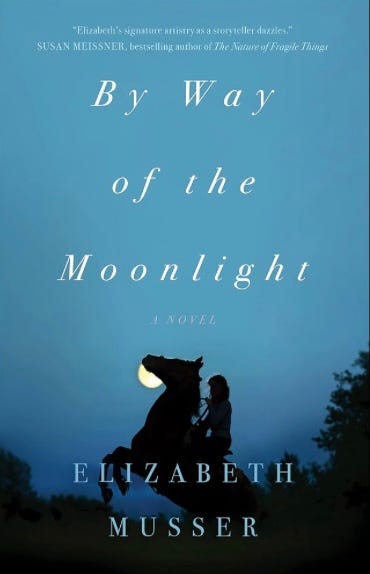
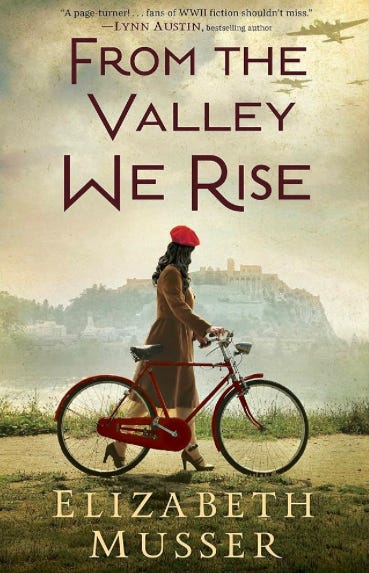
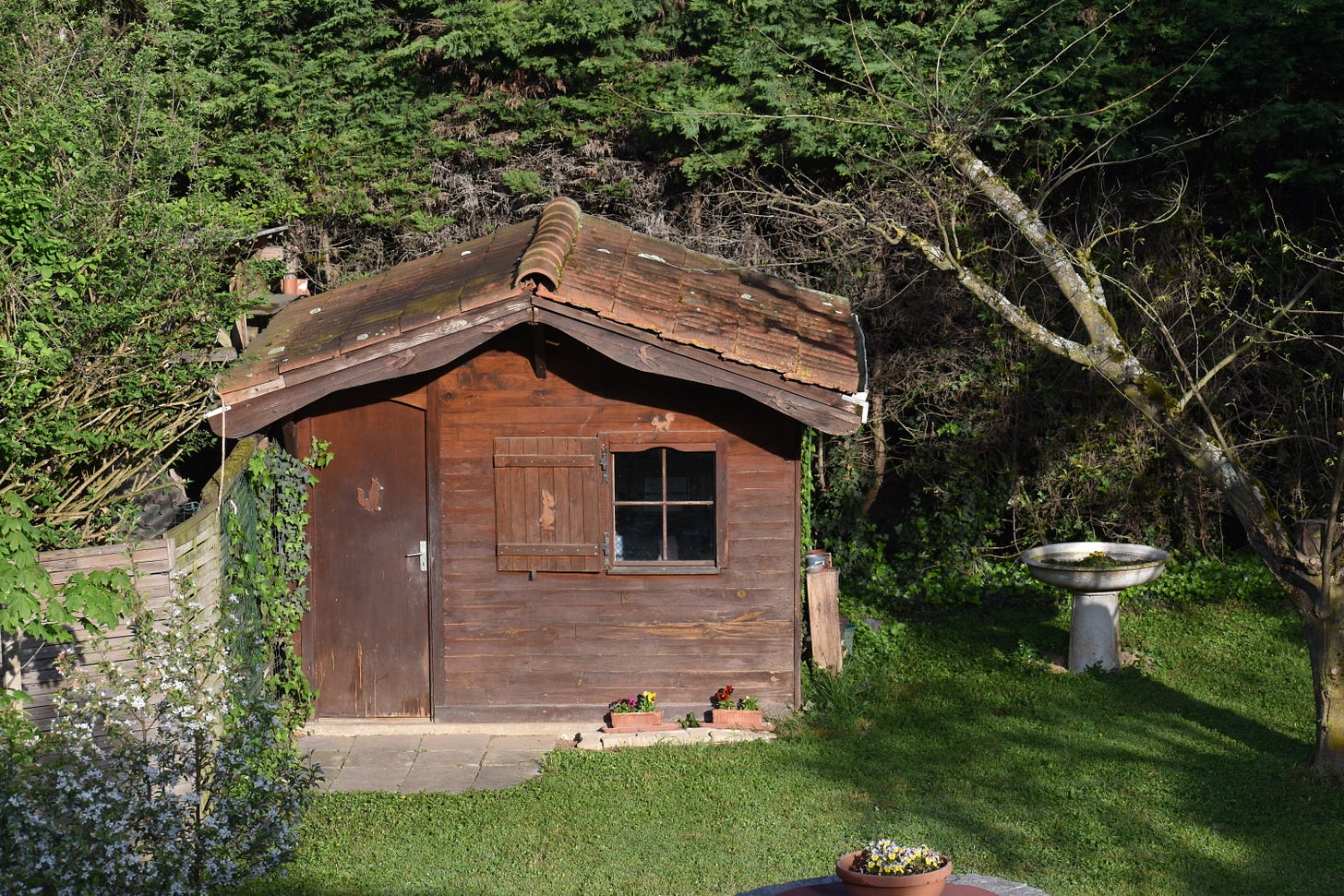
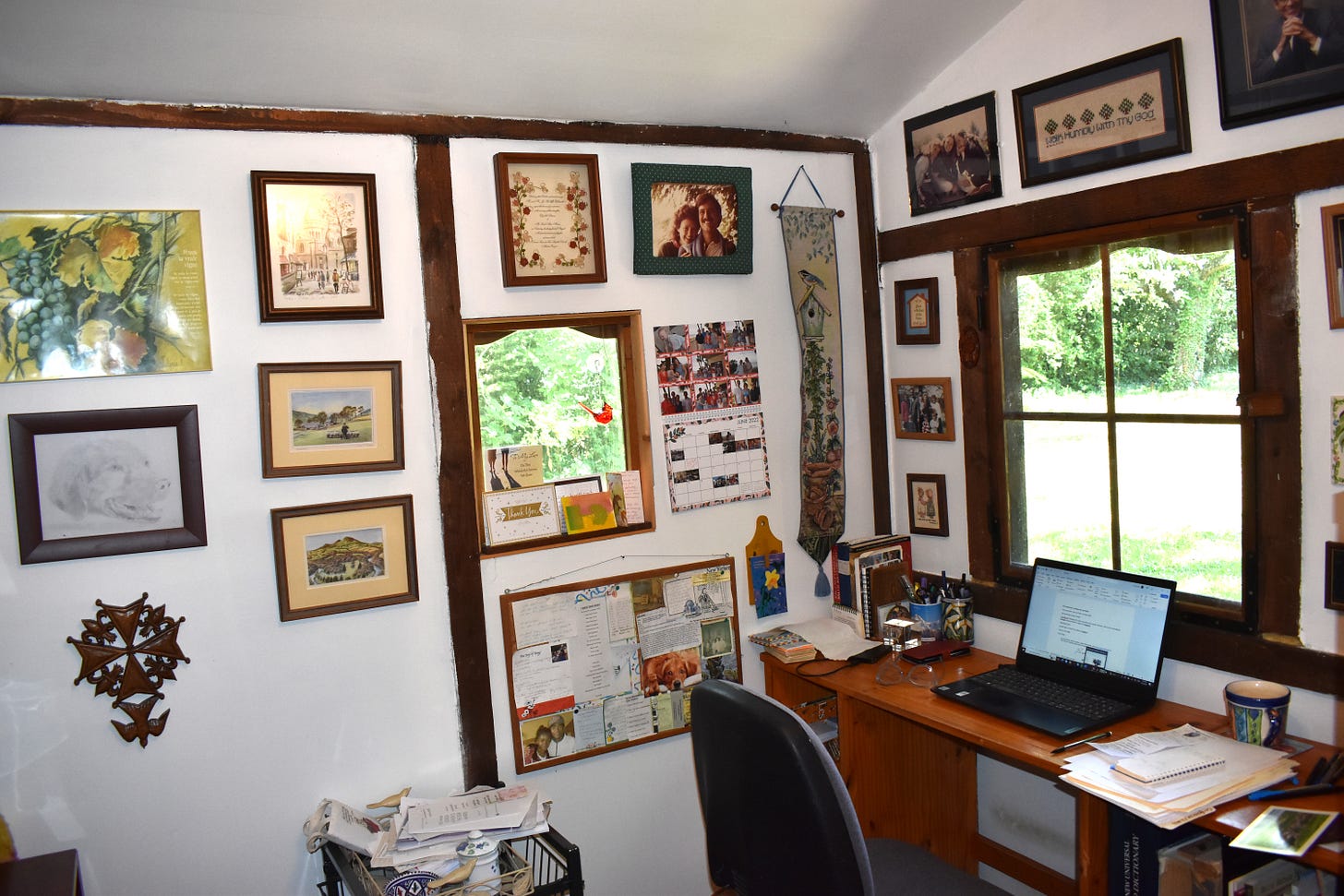
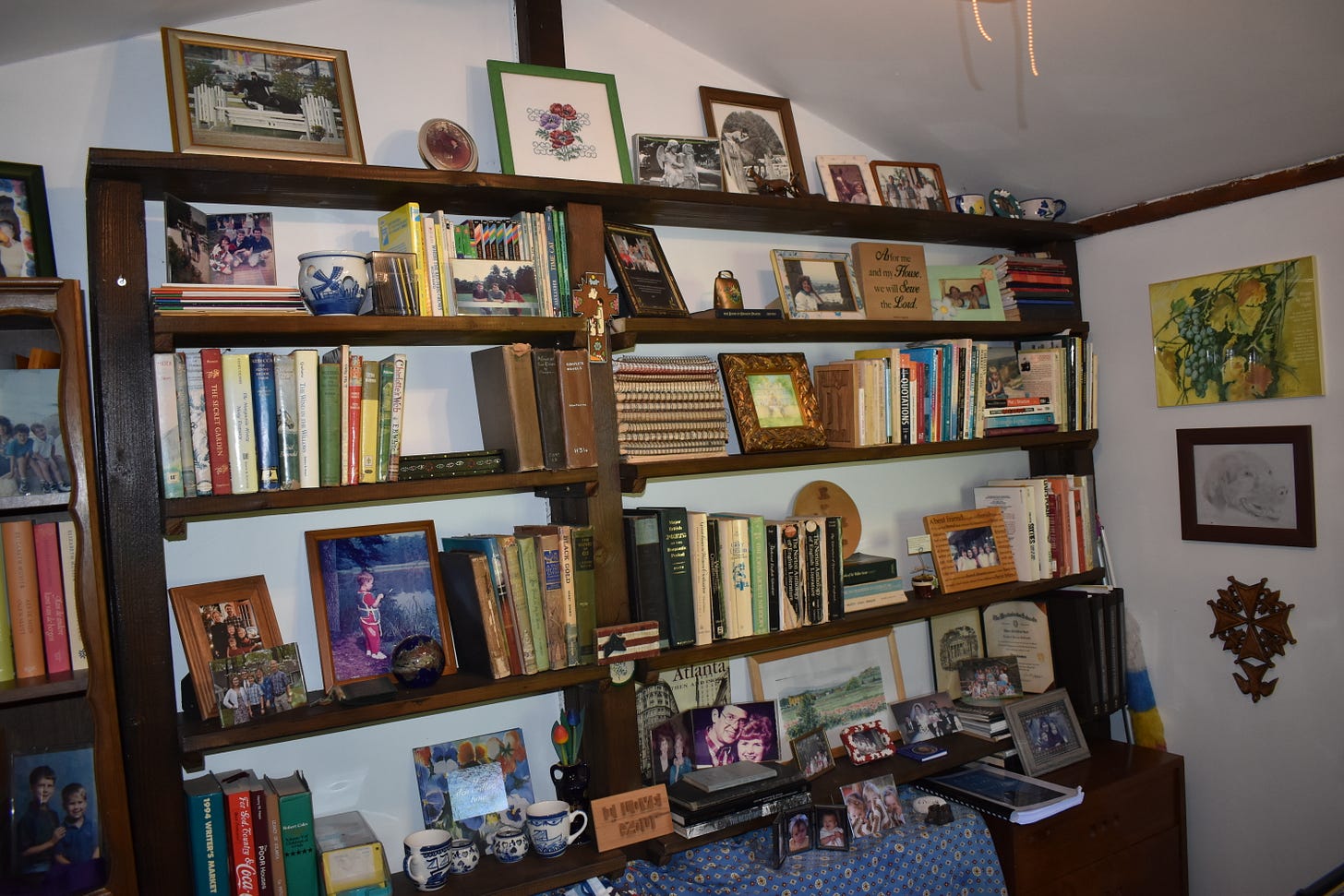

Thank you for this in-depth interview. The first book I read by Elizabeth Musser was “The Promised Land”. I didn’t know anything about the author, but I picked it up while traveling; I found it on sale at a book store. It’s very interesting to learn more about the author and her new book.
I can't wait to read these books! Maybe we will need to visit her in France!😉